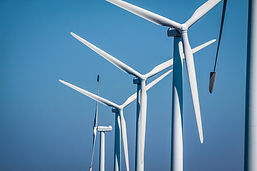Science
Mini- Research Project
Question Due Date:
December 21, 2017
Report Due Date:
February 14, 2018
Parent meetings regarding the science research projects were held on:
Tuesday, December 6, 2017 and December 12, 2017. The third meeting will be December 20, 2017 at 8:00 am.
Please check your child's folder for any "hard" copy of information that has been sent home. Please place the hard copy in a safe place as it is several pages and we all know it is bad for the environment to waste resources. You can always access the same information on the science handout page.
NOTE: If you find that you have trouble with any of the links, you may want to "Google Search" the link.


Grade 4 Topics:
-
forces that affect the speed and motion of objects
-
types, transfer and conversion of energy forms and locations
-
energy and fuels from natural resources and use in the environment
-
effects of gravity on objects on Earth
-
material of matter determines its characteristics and reactivity
-
increase and decrease forces of magnetism and electricity over distance and through matter
-
interaction with energy can be helpful or harmful
-
animals that sense and process info from the environment to survive
-
internal and external structures of a plant or animal that help it survive
-
effects of weathering and erosion by ice, wind, weather and vegetation
-
plants and animals are interdependent and affected by environmental conditions
-
transfer of energy between producers, consumers and decomposers
-
recycling nutrients by decomposers
-
how plants manufacture and store food
-
positive and negative results of humans changing the environment
-
reflection and absorption of light and heat by different colors
-
water is recycled by natural processes on Earth
-
temperature affects cycles and states of matter on Earth
-
cycles and events caused by interactions of air, water and land on Earth positive and negative impacts of extreme natural events
Grade 5 Topics:
-
particles of matter
-
quantity and quality of changes in matter
-
physical and chemical changes of matter
-
wave patterns (amplitude and length) that cause the movement of objects
-
communities use science to protect Earth’s resources and environments
-
patterns of daily changes in length and direction of shadows, day and night, and the appearance of stars in the sky
-
patterns in rock and rock layers explain changes over time
-
interactions of geosphere (land), biosphere (organisms), hydrosphere (water) and atmosphere (air)
-
processes and consequences of changes of Earth materials by air, water and land
-
transformation of rock
-
the effects of weathering, deposition and erosion on Earth air, water and land
-
geothermal energy causes earthquakes, volcanoes, creation of mountains and ocean basins
-
dynamic equilibrium that sustains life
-
effects of nutrition and exercise on health
-
environmental conditions affect the growth, development and health of organism
-
animal adaptations that are influenced by changes in the environment
-
interconnection of plants and animals in an ecosystem
-
interdependence of plants animals and physical environment for survival
-
human decisions and activities have a profound impact on the environment’
-
components of ecosystems
-
cells use oxygen to release the energy stored in foods
-
sun’s energy is converted to chemical energy in the chlorophyll of plants
-
populations with similar needs compete for resources in an environment
-
activities of organisms can alter environments
-
effects of overpopulation in an environment or ecosystem
-
effects of human activities using land and resources ecological effects of acid rain, global warming and ozone deletion



Grade 3 Topics:
-
forces that affect the motion of objects
-
observable and measurable properties of matter
-
material of matter determines some properties
-
forms of energy and events that change those forms
-
transfer of energy from one place or object to another
-
interaction of matter and energy (helpful and harmful)
-
magnetic interactions of objects (cause and effect)
-
electrical interactions of objects (cause and effect)
-
mechanical energy in simple machines
-
friction, gravity, pushes and pulls and changes in motion
-
different characteristics in a species provide advantages for survival, growth, reproduction
-
adaptation/response (physical and behavioral) of plants and animals when the environment changes
-
traits of plants or animals that are influenced by the environment
-
variations of traits of plants or animals that are inherited, acquired, learned
-
unique and diverse life cycles of organisms
-
similarities and differences of inherited traits of plants and animals
-
climates of the regions of the world
-
protection of the shore from weather hazards effect of weather and water on Earth











TOPIC: Students will choose a topic from the approved grade level lists provided below (These topics are aligned to N.Y.C. Science Scope and Sequence):
The student may NOT choose the same topic that he/she researched last year.
If a preferred research topic is not on your grade level list, the student must get approval from Ms. McGinty before researching the topic.
The requested topic must however, relate to one of his or her grade level topics.
Approved Grade Lists
Choose A Topic From:
Your Own Grade Level
Grade 2 Topics:
-
properties of matter
-
plants’ needs and adaptations for survival
-
animals adaptations for survival
-
interaction of energy and matter
-
forces that affect the speed and motion of objects
-
how plants and animals depend on each other for survival
-
compare survival of differing plants in various habitats
-
plant structures and functions
-
inherited traits aid in survival of plants and animals
-
life cycles of different plants
-
plant responses to changes in environment
-
wind and water change the shape of the land
-
erosion and deposition
-
solid and liquid sources of water on Earth
-
weather patterns during the seasons
-
communicating with light and sound
-
causes and patterns of daylight during different seasons
New for 2017-18!
